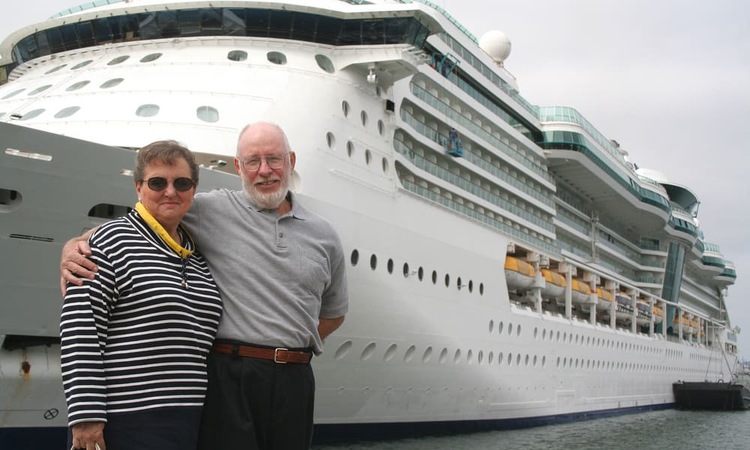Opportunities to Work at Sea: What Cruise Employment May Involve
Working on a cruise ship can offer a unique lifestyle with structured responsibilities and defined routines. Roles vary, and some may include training, shared accommodation, and specific work schedules. This overview outlines general aspects of cruise ship employment, including possible duties, contract types, and what candidates might expect when considering this career path. It is intended for those exploring long-term work options in an international environment — with no exaggerated claims or unrealistic promises.

What types of jobs are available on cruise ships?
Cruise ships offer a wide array of employment opportunities across different departments. The hospitality sector is the largest, encompassing roles such as waitstaff, bartenders, housekeeping, and guest services representatives. Entertainment positions include performers, musicians, and activity coordinators. Technical jobs involve deck and engine crew, while medical staff and IT professionals are also in demand. Management positions are available in various departments, from food and beverage to hotel operations. Each role contributes to the smooth running of the ship and ensures passengers have an enjoyable experience.
What are the typical responsibilities in cruise employment?
Responsibilities on a cruise ship vary greatly depending on the specific role, but all positions share some common elements. Customer service is paramount, with most jobs involving direct interaction with passengers. Attention to detail and adherence to safety protocols are critical across all departments. Many roles require long hours and the ability to work in a fast-paced environment. For example, housekeeping staff must maintain high standards of cleanliness while working efficiently, while dining room staff need to provide prompt and courteous service during peak meal times. Technical crew members must ensure the ship’s systems are functioning correctly at all times.
How is life typically organized aboard a cruise ship?
Life on a cruise ship is highly structured, with clear routines and schedules. Crew members usually work seven days a week for the duration of their contract, which can range from four to nine months. Days are divided into shifts, with some roles requiring split shifts to cover different parts of the day. Off-duty time is limited but valuable, offering opportunities to explore ports of call, use crew facilities, or simply rest. Meals are taken in crew dining areas, and there are usually designated spaces for relaxation and socializing. The ship becomes a floating community, with crew members from diverse backgrounds living and working in close proximity.
Are structured routines and shared spaces part of the work environment?
Indeed, structured routines and shared spaces are integral to the cruise ship work environment. The nature of shipboard life necessitates a high degree of organization and adherence to schedules. Crew members quickly adapt to the rhythm of embarkation and disembarkation days, sea days, and port days. Shared accommodations are the norm, with most crew members sharing cabins with one or more colleagues. Common areas such as crew bars, gyms, and lounges provide spaces for relaxation and socialization. This close-knit environment fosters a unique camaraderie among crew members, often leading to lasting friendships and professional networks.
What qualifications and skills are needed for cruise ship jobs?
Qualifications for cruise ship jobs vary depending on the position, but there are some common requirements. Most roles demand excellent communication skills and fluency in English, with additional languages often being an asset. Hospitality positions typically require previous experience in customer service or related fields. Technical and specialized roles, such as marine engineers or medical staff, require specific certifications and qualifications. Soft skills like adaptability, teamwork, and cultural sensitivity are highly valued across all positions. Many cruise lines provide training programs for entry-level positions, making it possible for those with the right attitude and work ethic to start a career at sea.
What are the benefits and challenges of working on a cruise ship?
Working on a cruise ship offers unique benefits and challenges. The opportunity to travel and experience different cultures is a major draw for many. Financial benefits can be significant, with most positions offering free accommodation and meals, allowing crew members to save a substantial portion of their earnings. Career advancement opportunities are often available for those who excel in their roles.
However, the lifestyle can be demanding. Long work hours, limited personal space, and extended periods away from home and loved ones can be challenging. The constant movement and potential for seasickness may not suit everyone. Despite these challenges, many find the experience rewarding, both personally and professionally.
| Position | Department | Typical Contract Length | Entry-Level Salary Range (USD/month) |
|---|---|---|---|
| Waiter | Food & Beverage | 6-8 months | $1,200 - $2,500 |
| Cabin Steward | Housekeeping | 6-9 months | $1,000 - $2,200 |
| Entertainer | Entertainment | 4-6 months | $2,000 - $4,000 |
| Deck Officer | Marine Operations | 4-6 months | $3,000 - $5,000 |
| Guest Services | Hotel Operations | 6-8 months | $1,500 - $2,800 |
Prices, rates, or cost estimates mentioned in this article are based on the latest available information but may change over time. Independent research is advised before making financial decisions.
Working on a cruise ship provides a unique opportunity to combine travel with professional growth. While it comes with its own set of challenges, many find the experience incredibly rewarding. For those seeking adventure, cultural exchange, and the chance to develop a diverse skill set, a career at sea can be an exciting and fulfilling choice. As with any career decision, thorough research and careful consideration of personal goals and preferences are essential when exploring opportunities in cruise ship employment.
The shared information of this article is up-to-date as of the publishing date. For more up-to-date information, please conduct your own research.






